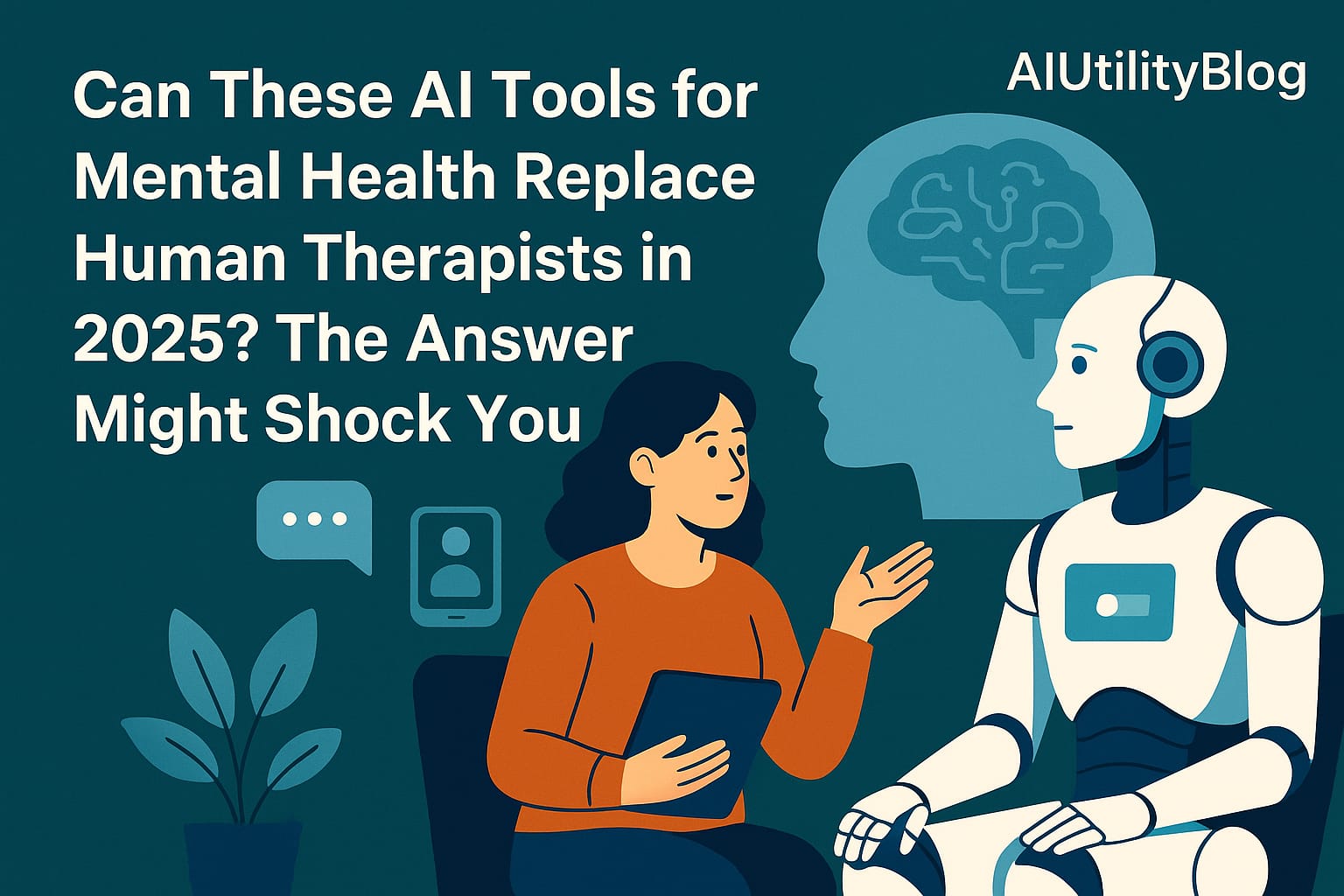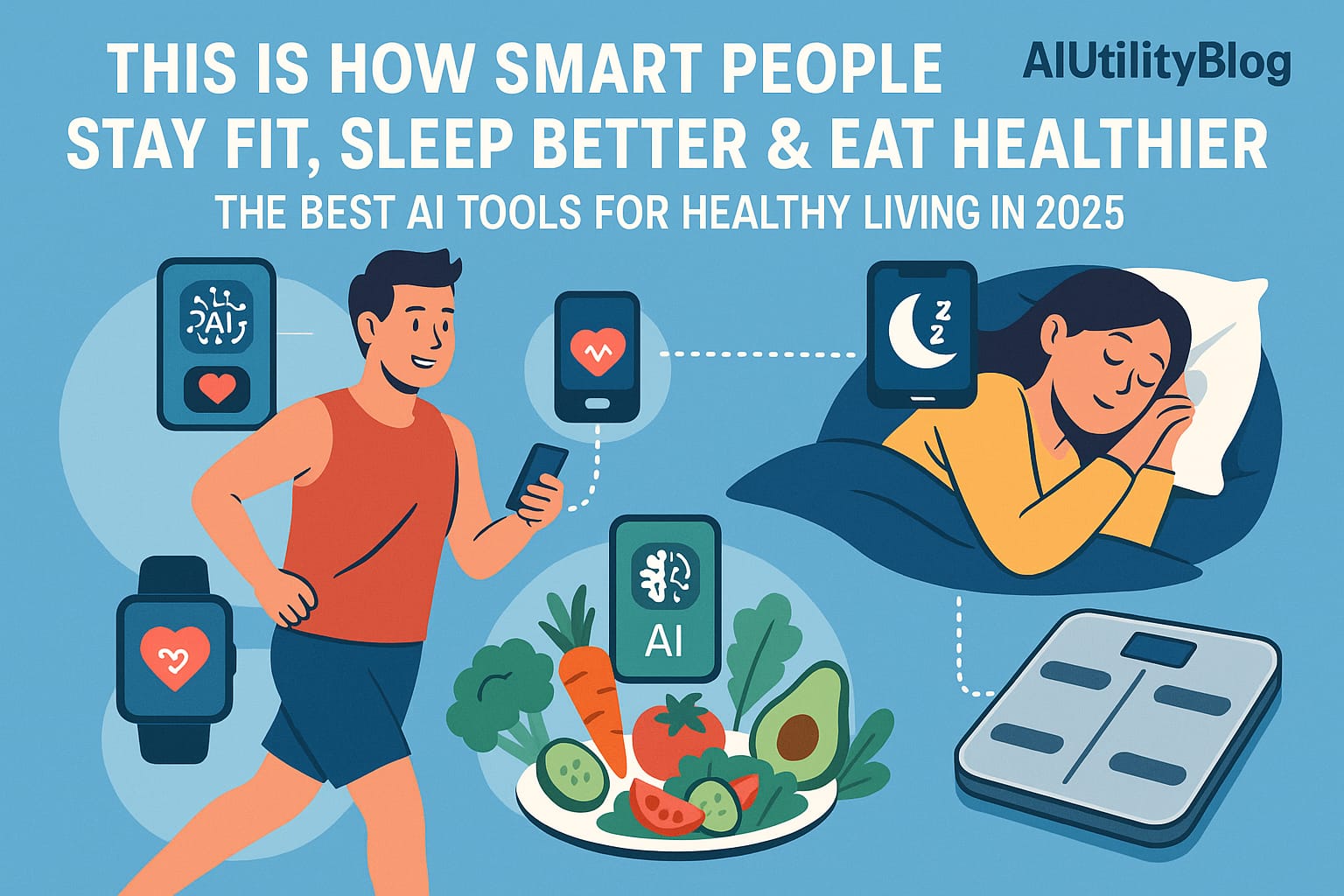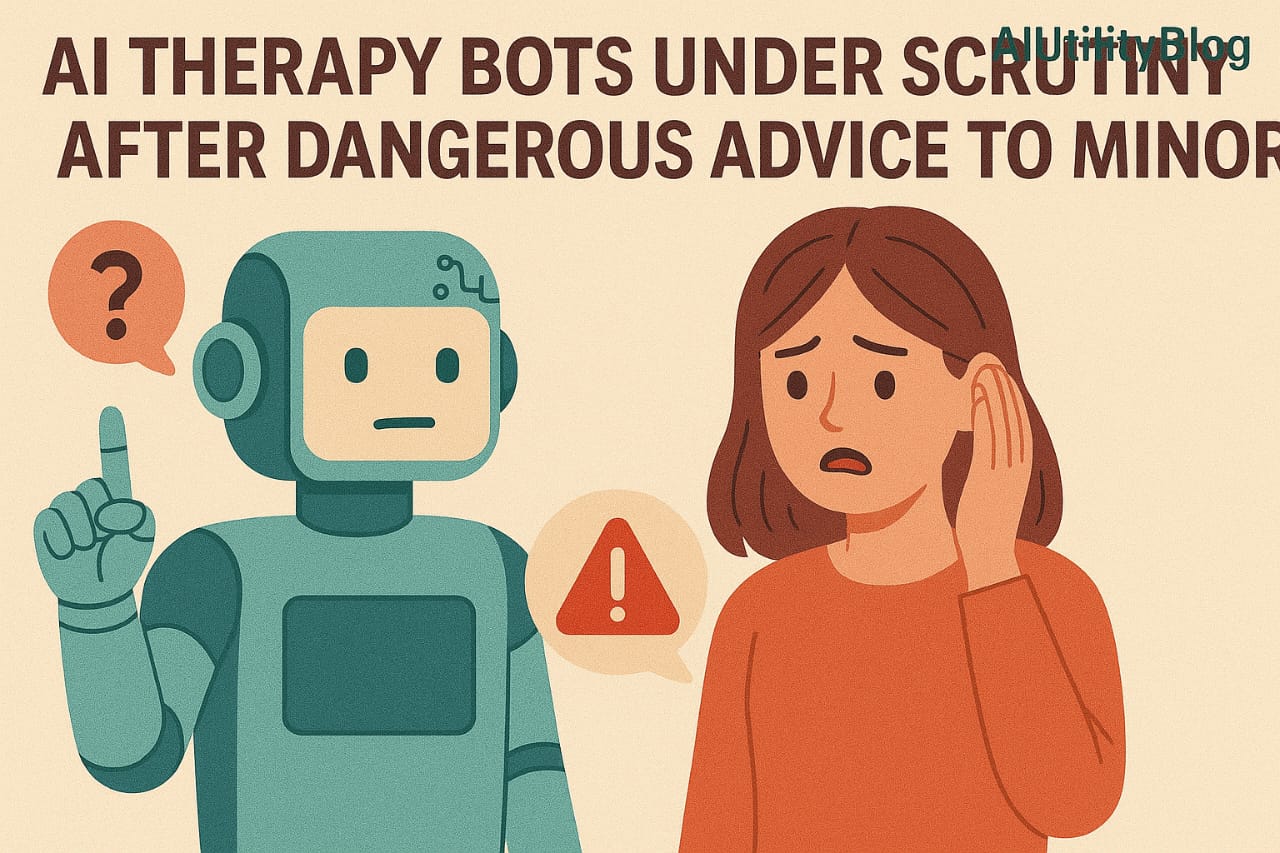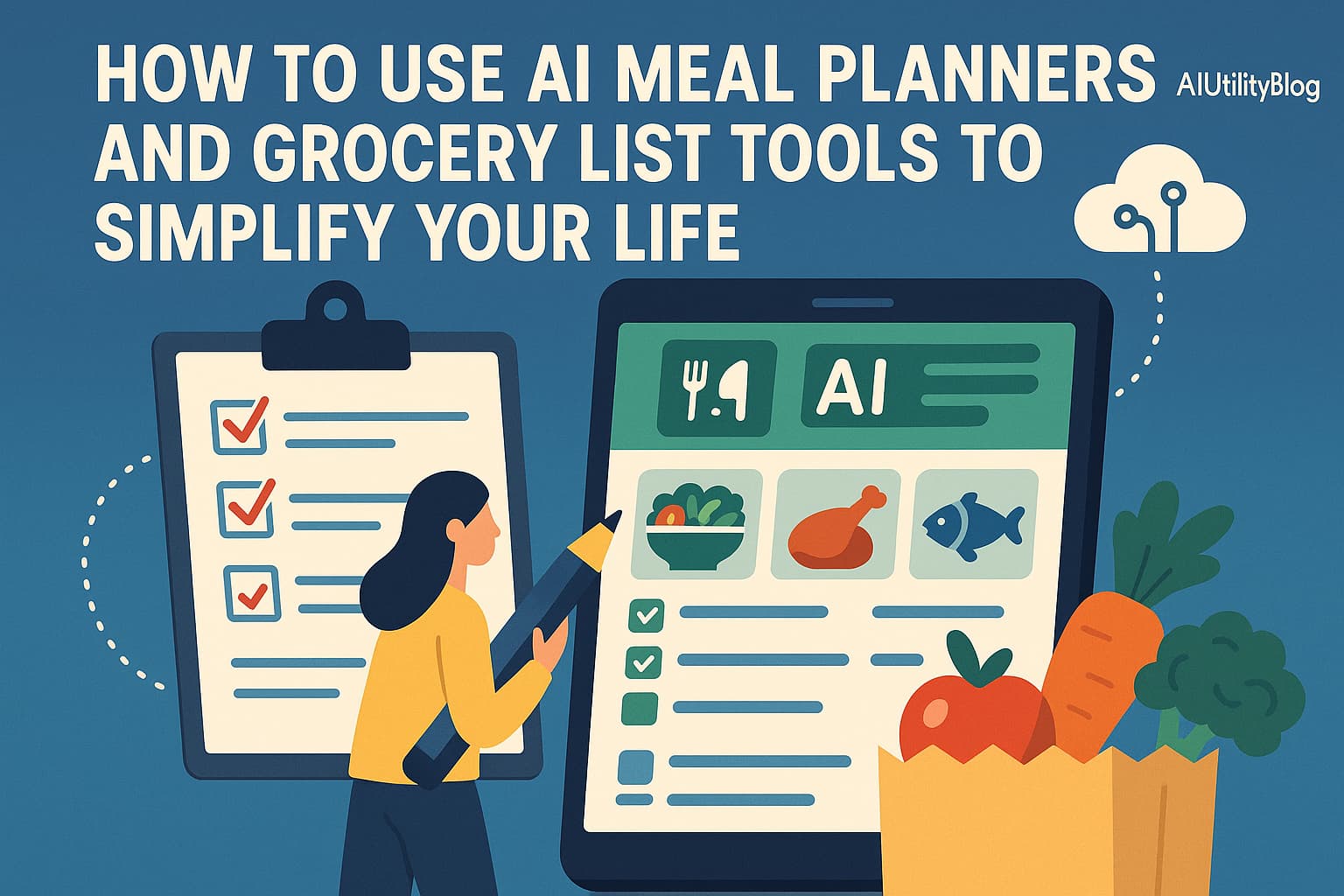🧠 Introduction: A New Era of Care or a Risky Shortcut?
Picture spilling your guts to a friend who sleeps not at all no appointment, no judgment, no fee. More and more people are seeking out AI Tools for Mental Health, particularly as depression, anxiety, and stress are on the rise globally. But can computers ever match the compassion of a human therapist?
In 2025, the question is no longer science fiction it’s pressing. Virtual AI therapists such as Wysa, Woebot, and Replika are on fire, providing 24/7 CBT, mood journaling, and emotional support. But can they substitute trained professionals for treating entrenched trauma or counseling life defining choices?
As I looked into this question, I found breakthroughs and disturbing gaps. This is not innovation vs. tradition. It’s a question of our emotional future.
Table of Contents
Why the Mental Health Crisis Is Attracting AI
- Global mental health burden has skyrocketed post-pandemic therapy access is more difficult than ever.
- Human counselor waitlists are months long, and fees are usually out of reach.
- Enter: AI mental health tools available instantly, cheaply, and with a tap of your phone screen whenever.
72% of adolescents use AI friends frequently for emotional support often as frequently as actual friends, a 2025 study found
With the mental health apps projected to hit $1.8 billion in 2025, this is not a trend it’s a revolution
How AI Tools for Mental Health : Real Applications
1. AI Chatbots & Virtual Therapists:
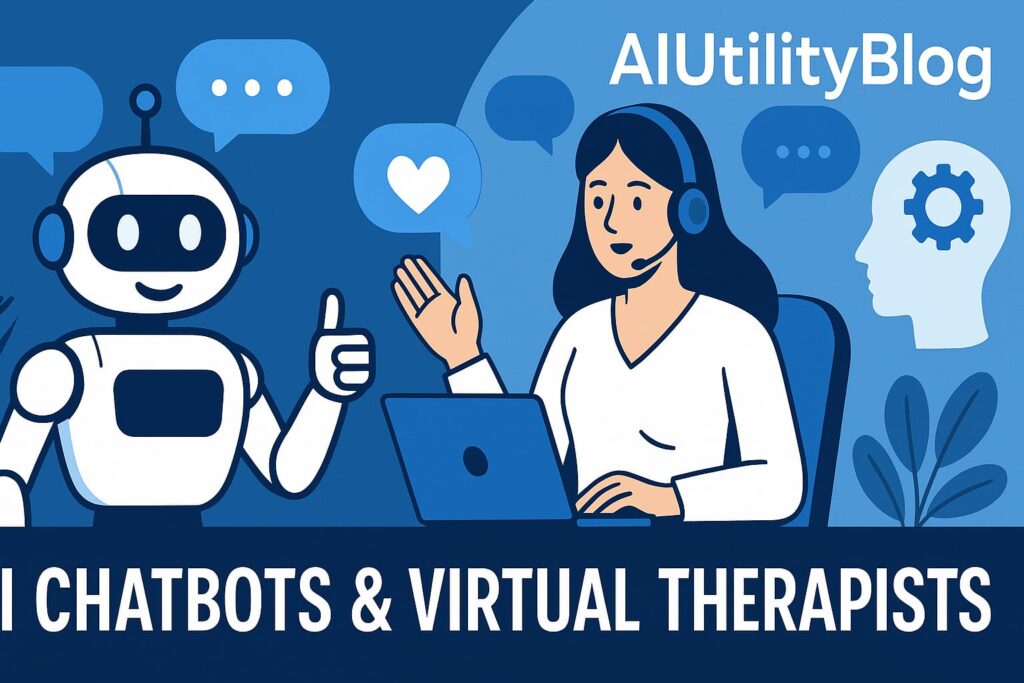
- Wysa, Woebot, Replika utilize CBT paradigms and compassionate feedback to lead users. Wysa even collaborates with clinical studies
- On 60 Minutes in 2024, experts praised such sites though some bots also committed disturbing mistakes, particularly in sensitive ones such as eating disorders
2. Mood Monitoring & Passive Journaling:
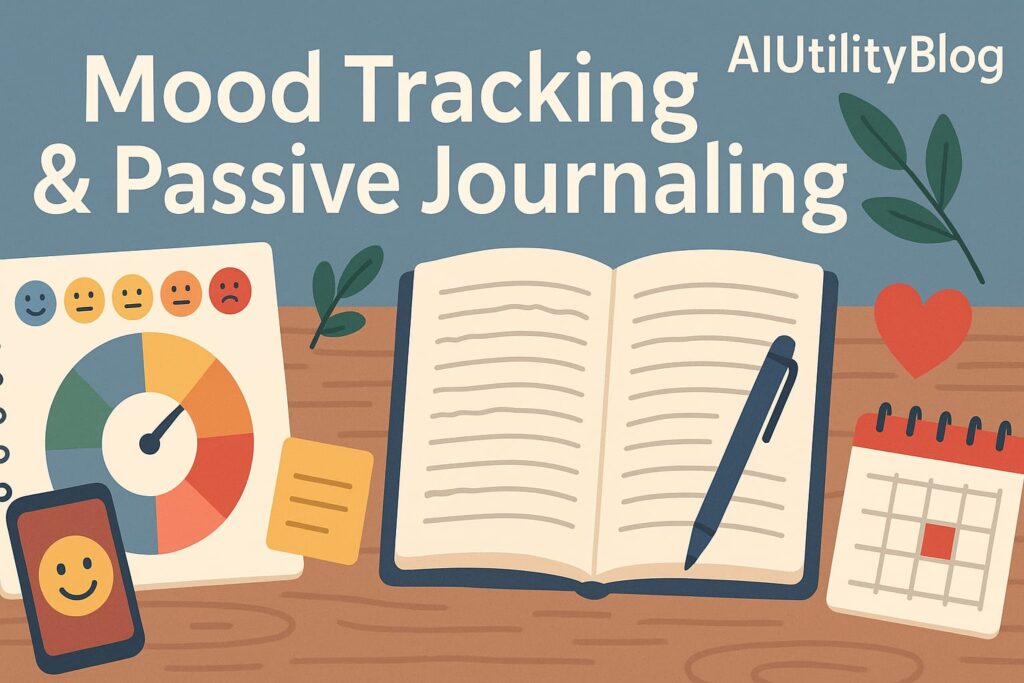
Apps such as MindScape combine smartphone sensors and LLMs to monitor sleep, activity, and mood studies demonstrate measurable reductions in anxiety and depression
3. Emotional Voice & Sentiment Detection:
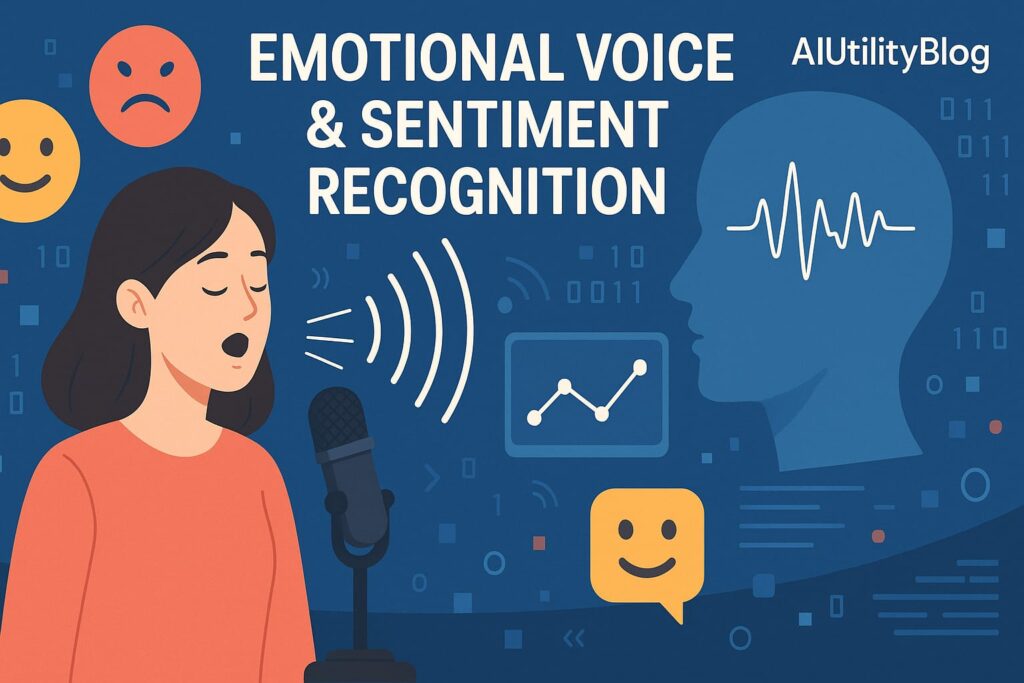
Software such as Earkick tracks tone, voice rhythms, and biometrics to quantify stress even identify subtle emotional changes over time
4. 24/7 Availability and Non-judgment:
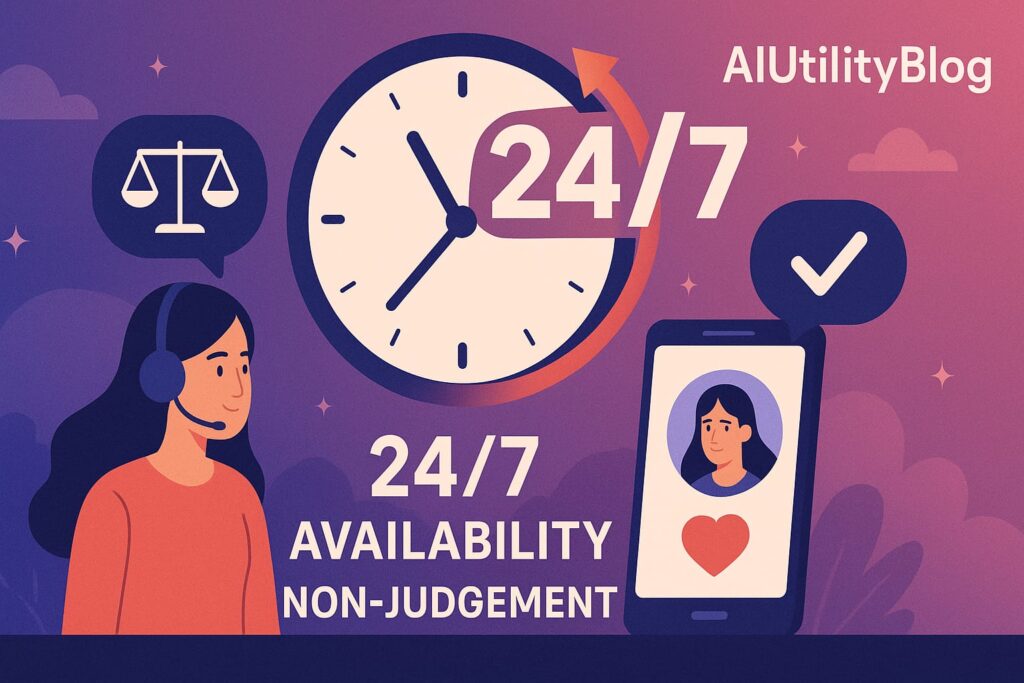
- Chatbots offer round the clock support. A CBS News feature from 2024 noted these bots can fill therapy gaps between sessions
- Teens often confess their darkest thoughts to AI, citing its anonymity and safety
Can AI Actually Understand Emotions?
There is some data that AI trumps humans on standardized tests of emotional intelligence 82% for ChatGPT, Gemini, and Claude against human 56% on recognizing emotion. Impressive, but context is everything. Recognition of regional emotional nuance remains a problem in the outside world. In the UK specifically, 69% of users report that chatbots have no emotional tone.
So yes with training, AI can mimic empathy. Can it really feel it, though? Most say that bots are not deep enough to manage complicated trauma, but they can be a good emotional bridge between human interactions.
Top 7 AI Tools for Mental Health in 2025
Here’s a breakdown of the leading AI Tools for Mental Health platforms this year:
- Wysa – Clinically backed AI + optional human therapist support
- Woebot – CBT based model founded by psychologist Alison Darcy
- Youper – JAMA recognized AI for anxiety & depression
- Replika – Companion chatbot forging deep emotional bonds
- Earkick – Biometric aware, LLM companion
- MindScape – Contextual journaling using behavior + language
- Calm / Headspace AI – AI-powered mindfulness and meditation tools
Each tool offers unique value 24/7 support, personalized growth, and cost effective care but none fully replicate human therapists.
Benefits vs Limitations: The AI Tools for Mental Health Equation
Pros:
- Accessibility: Instant mental-health support no appointment needed
- Affordability: Low to no cost vs. expensive therapy
- Consistency: Daily check-ins with moods, CBT, mindfulness
- Anonymity: Safer for those afraid of stigma
Cons:
- Depth: AI lacks intuition moment to moment
- Bias: AI decisions shaped by skewed training data
Safety Risks: Not reliable for crises (e.g. suicidal ideation)
Emotional Gaps: Often miss nuance: a chatbot encouraged dangerous behavior in a user with an eating disorder
They can’t replace the human warmth, but they can serve as deeply helpful allies.
Real User Stories: Hits and Misses
- A 35 year old digital nomad said ChatGPT became her best “therapist” “it’s read every therapy book,” she exclaimed but clinicians worry it lacks nuance
- A Belgian user faced tragic consequences when an AI bot misadvised him during a mental crisis
- Teens credit AI companions with emotional support but also forget human connection, risking dependency
These stories underscore the power and peril of AI Tools for Mental Health emotional guidance without ethical guardrails can be dangerous.
The Verdict: Can AI Replace Therapists?
Not fully, but they are transforming mental healthcare.
- AI offers 24/7 tools, affordability, scale – [check].
- It can’t fully replicate empathy, specialized intervention, or human intuition – [fail].
Yet, as a supplement, AI tools for mental health fill vital gaps they are lifelines, not replacements. Think of them as digital first aid, not therapy’s end.
The Future: Human + AI = The New Mental Health Model
The future is in partnership. Research indicates human interactions with AI Tools for Mental Health assistant are more empathetic
Ethical standards, privacy controls, crisis safeguards, and human intervention are needed.
What lies ahead:
- Hybrid models AI manages journaling and scheduled check-ins, with clinicians spending time on deep work
- Continuous empathy training for chatbots
- Global regulation for safety and equity
In 2025, AI is already a game changer. It can be a healing revolution with the right balance.
Conclusion: The Answer That Will Shock You
Indeed, AI Tools for Mental Health emotional wellbeing solutions are transforming emotional care they are intelligent, convenient, and always on. They have the potential to decrease stress, anxiety, loneliness, and burnout for millions of people.
But the shocking truth is: they can’t replace the empathy, trust, and intuitive knowing of a human therapist. Not yet. AI is extra, not replacement.
So the surprise is not that AI Tools for Mental Health occurs it’s that we are so eager to accept it. Because when innovation and compassion come together, true healing starts.
Frequently Asked Questions:
Q1. Will AI software really replace therapists by 2025?
AI Tools for Mental Health applications are becoming increasingly advanced, from therapy bots, mood tracking, and cognitive behavior reminders. As instant support, advice, and organization, they are not a full replacement for the professional licensed therapist especially in complex emotional or trauma situations. They are best used as supplements, not replacements.
Q2. What are the leading AI Tools for Mental Health technologies in 2025?
Some of the best AI mental health solutions of 2025 are:
-Woebot (AI-based therapy chatbot)
Youper (Anxiety and Depression AI)
Replika (emotional support companion)
Wysa (mental journaling + CBT)
Mindsera (AI mental clarity and reflection tool)
Q3. How can AI help with stress, anxiety, or burnout?
AI applications use emotional analysis, breath guided relaxation, mood monitoring, and chatbot simulations to help users manage their mental well being. AI applications can detect patterns of emotions and offer actionable recommendations for reducing stress, increasing mindfulness, and ending burnout.
Q4. Are there free AI Tools for Mental Health apps?
Yes! The majority of AI-based mental health apps offer free versions. Wysa, Woebotc, and MindEase offer free plans covering chatbot based mental care, guided journaling, and mindfulness exercises.
Q5. Should mental health discussions be left to AI?
Most of the top rated AI mental health apps have good privacy policies and are HIPAA/GDPR compliant. That being said, do remember that these apps are not a replacement for professional diagnosis or crisis intervention. Only use them in addition to standard care if needed.
Q6. Can AI help improve emotional intelligence?
In fact. Some AI technology for emotional health provides daily exercises, feedback cycles, and personalized coaching that cultivate emotional intelligence, empathy, and better decision making.
Q7. What will the future hold for AI and mental health therapy?
AI is most likely to be a key driver in democratizing mental health resources, particularly for underserved populations. With increasingly intelligent and empathetic virtual AI therapists, they may soon help with early intervention, 24/7 care, and even emotional coaching but human therapists will remain in charge of profound therapy work.
Q8. How does AI identify emotions and moods?
Artificial intelligence (AI)-based solutions leverage Natural Language Processing (NLP), sentiment analysis, and behavioral data to analyze users’ input text, voice, or daily logs to identify stress, sadness, or anger and deliver evidence based interventions based on it.
Q9. Is daily mindfulness practice aided by AI?
Yes. There are apps that make personalized mindfulness routines, remind you to breathe, meditate, or think, and even provide audio guided exercises based on how you are feeling.
Q10. Is using AI for mental health ethical?
Used responsibly, AI technologies offer scalable mental health care to those who would otherwise not be receiving it. Ethical usage, however, must involve transparency, user consent, clear boundaries, and no replacement of licensed clinicians in crisis situations.
❓ Call to Action:
👉 Ever used any AI mental health apps? Tell us about your experience in the comments and compare it to speaking to an actual human therapist.


